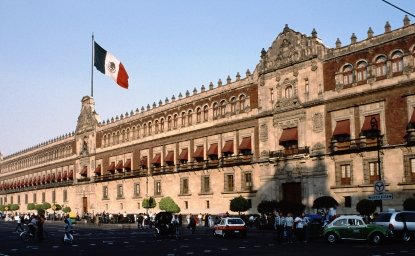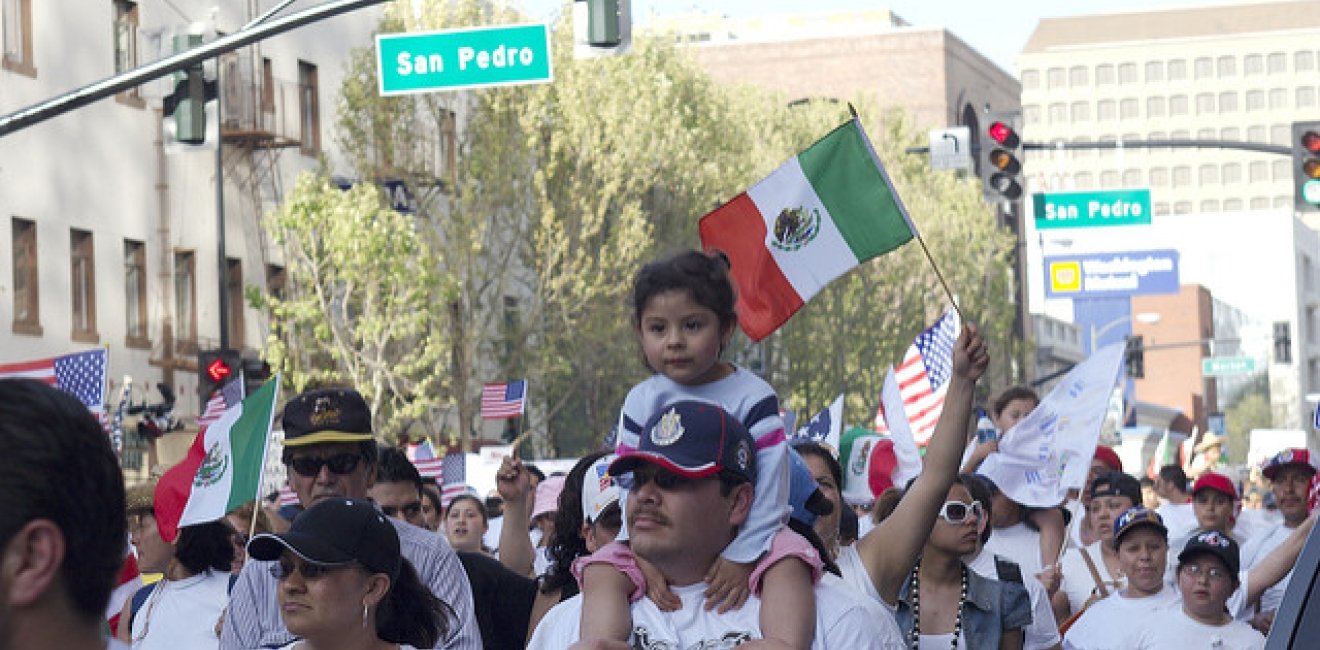Roughly 88 million Mexican voters are registered to vote in their country’s elections on July 1st. A significantly smaller population of voters has already begun to cast their ballots — Mexicans who live abroad. Mexican emigrants make up 12.2% of the total Mexican population, 97.33% of whom live in the United States. U.S.-based Mexicans have been registering to vote in record numbers, but the overall number of registered voters abroad is unlikely to play a pivotal role in this election. Andres Manuel Lopez Obrador (AMLO) is so far ahead in the polls that absentee ballots will not be decisive this time around.
But the growing number of Mexicans registered to vote in the U.S. and other countries holds enormous potential for the future of Mexican democracy. Including millions of Mexicans should be of interest not only to political parties and their candidates who would love to benefit from their support, but also to those who wish to see a more inclusive democratic system.
Absentee Ballot Registration Increase
2018 is the first election year in which Mexico has allowed its citizens abroad to register to vote without returning to the country. Mexican nationals who have a registered voting card can go to the National Electoral Institute (INE) website and solicit a voting kit containing information and voting cards. Mexicans who did not have their voting card were able to make appointments through a Mexican consulate to obtain one to register. Mexican nationals can apply for a voter ID card regardless of their immigration status. The INE has also made efforts reach out to U.S.-based voters by increasing their absentee ballot funding and launching social media campaigns urging voters abroad to register through the online portal.
Lifting restrictions and greater promotion of absentee voting has facilitated the increase in registered voters outside of Mexico. As of May 2018, 181,256 Mexican nationals abroad had registered to vote, nearly triple the number from 2012. Potentially, the vote abroad could even play a determining role in a close election. Notably, in 2006, the presidency was decided by a little over 250,000 votes. The latest count shows that 4,235 voting packets have already been received in Mexico. Although Mexican law prohibits candidates from officially campaigning outside of Mexico, pre-campaign events held across the United States indicated a desire from the Mexican diasporic population to be included in their origin country’s politics.
Voting Process Too Difficult
Although 2018 looked promising for bringing in more absentee votes, the voting process is not without its challenges. The small number of ballots received to date reflects the difficulties that many potential voters have faced.
Unlike migrants from many other countries in Latin America, Mexicans abroad cannot vote in consulates. Instead they must mail in their votes, which often leaves room for human errors like forgotten signatures. Other difficulties stem from larger institutional problems. Despite the increase in mail-in votes, there is only one warehouse for storage, preemptively creating difficulties if a high voter mail-in rate occur. Consulates in places like Texas and California have been overrun with people seeking appointments to obtain a voter ID card. There were too many voting applicants in Dallas to process in time for the 2018 presidential election.
For those who did manage to obtain their credentials in time, delays of nearly two months were reported before their kits arrived. When they received their kits, voters reported difficulties in activation. Some kits even included the incorrect mailing address. The challenges in the voting process erode some of the progress gained in allowing Mexican nationals abroad to vote without returning to Mexico.
Future of Democracy in Mexico and Bilateral Relations
But what if these problems could be resolved in future elections to fully harness the potential of the migrant vote? While the percentage of Mexicans abroad is small, it is not insignificant. The Mexican population living abroad in 2017 was at 12,027,320, with over 11 million in the United States. If every Mexican abroad exercised their right to vote, they could substantially impact election outcomes. Yet, in 2012, only around 30,000 Mexicans in the United States voted. Although 2018 will likely have greater abroad voter turnout, the total number of registered migrant voters is only slightly higher than 1.5% of the total migrant population. The barriers to vote create a major disincentive to participate in the democratic process.
Nonetheless, the untapped potential of this group is considerable. This voting demographic could and should be a resource that Mexico uses as the country continues to transition to a full and mature democracy. More can be done to include absentee voters, such as growing the appointment capacity at Mexican consulates, improving the delivery process for voting packets, increasing transparency of vote counts, and communicating more effectively to voters abroad that their votes matter. It is also probably time to modify Mexican campaign laws to allow candidates to campaign in the United States as a way of attracting greater interest and participation.
An even better solution would be to permit voting in consulates. Mexico has 50 consulates in the U.S., the largest of any country abroad. These consulates have been crucial in protecting Mexican migrant rights in the U.S., and have been leaders in issuing recognized I.D.s so that Mexicans have a form of official credential. Consulates should now become centers not only for migrant rights in the U.S., but also for advancing the cause of democratic inclusion.
Imagine a future where more than 10 million Mexicans in the United States vote. This is not only important for election results. Mexicans abroad would be more closely tied to the political (and economic) future of their country of origin. Greater inclusion for Mexican migrants could be an important force for bilateral relations. Mexican governments would pay more attention to their citizens overseas and, in return, would likely see a stronger support network among their citizens within the United States, many of whom are also becoming American citizens. Increased migrant voting could end up being a force not just for greater democratic inclusion but also for a more positive U.S.-Mexico partnership.
This article was originally published on the Mexico Institute's blog on Forbes.com.
Authors


Advocate for Latin America, Refugees International

Mexico Institute
The Mexico Institute seeks to improve understanding, communication, and cooperation between Mexico and the United States by promoting original research, encouraging public discussion, and proposing policy options for enhancing the bilateral relationship. A binational Advisory Board, chaired by Luis Téllez and Earl Anthony Wayne, oversees the work of the Mexico Institute. Read more

Explore More
Browse Insights & Analysis
The Mexico Institute's 2018 Elections Guide



